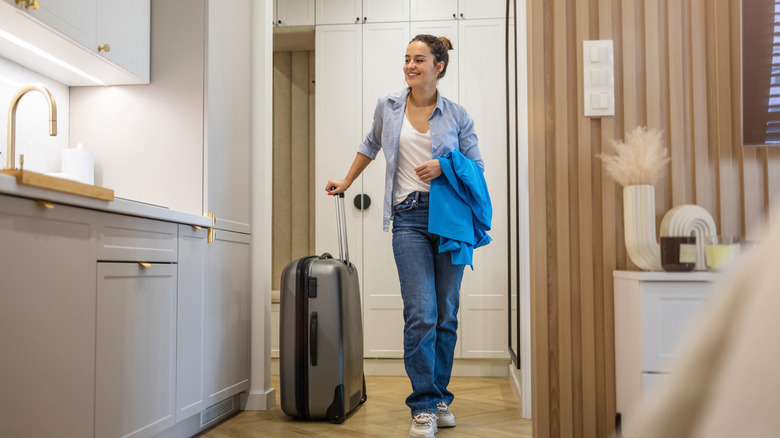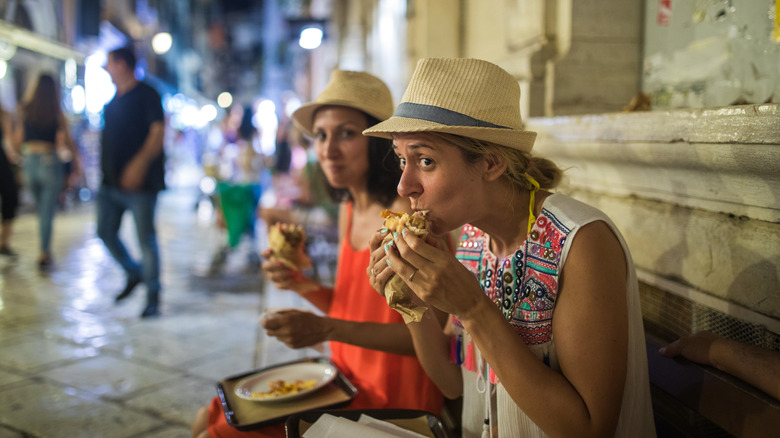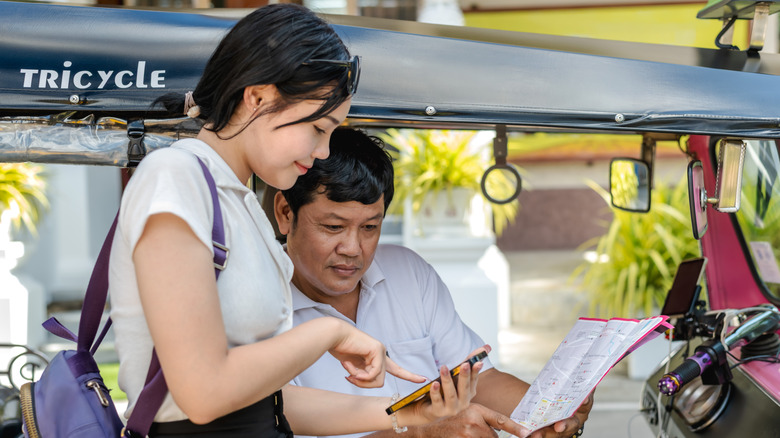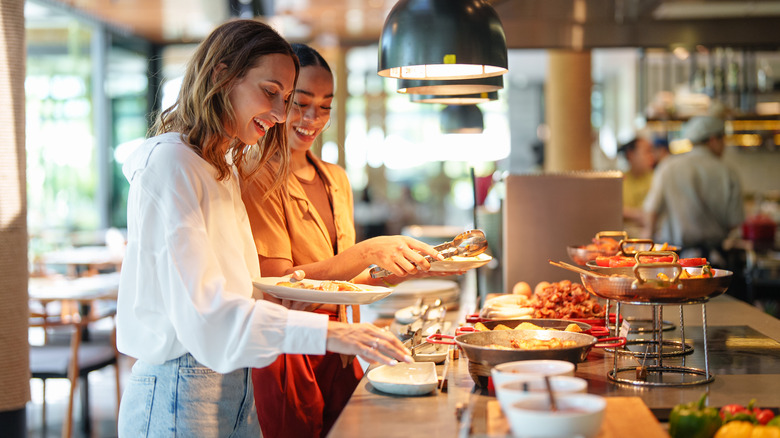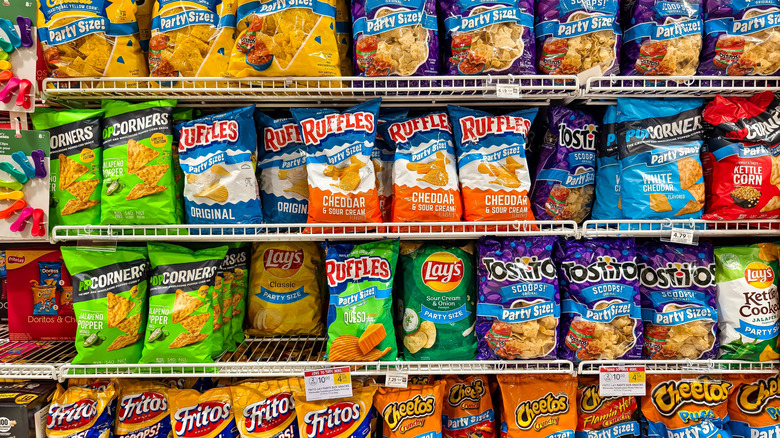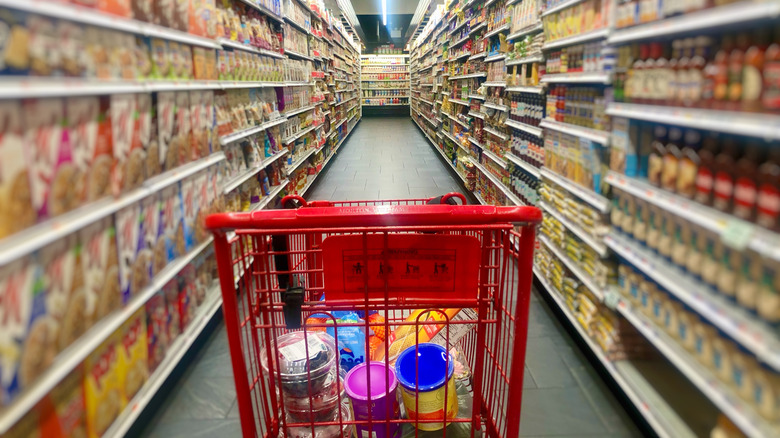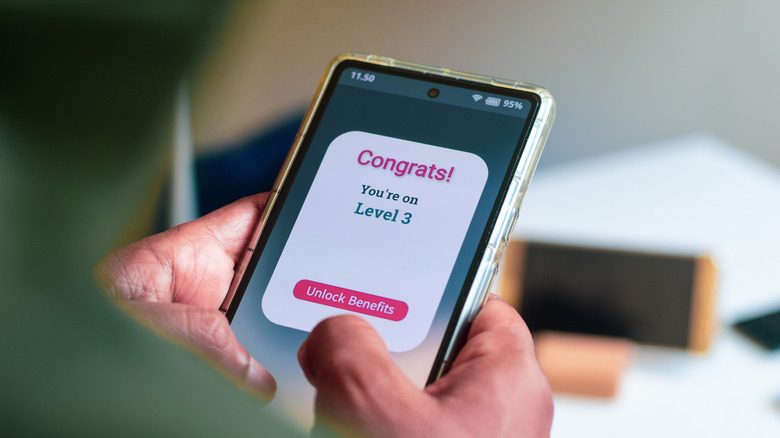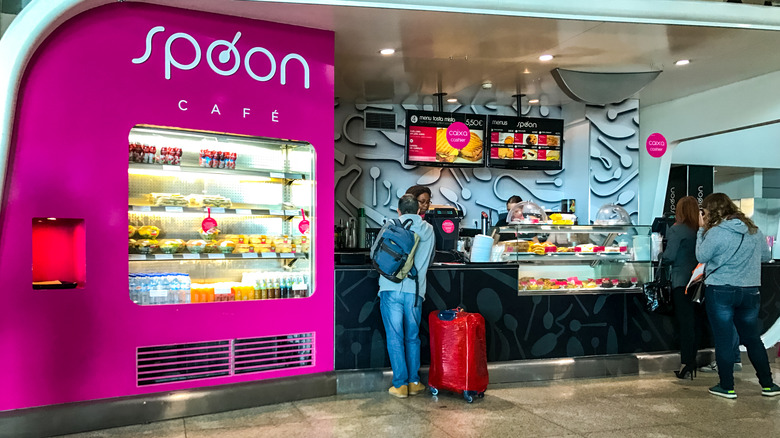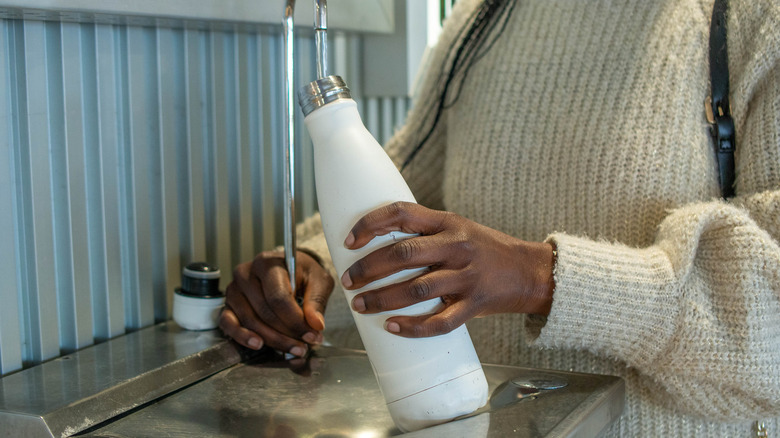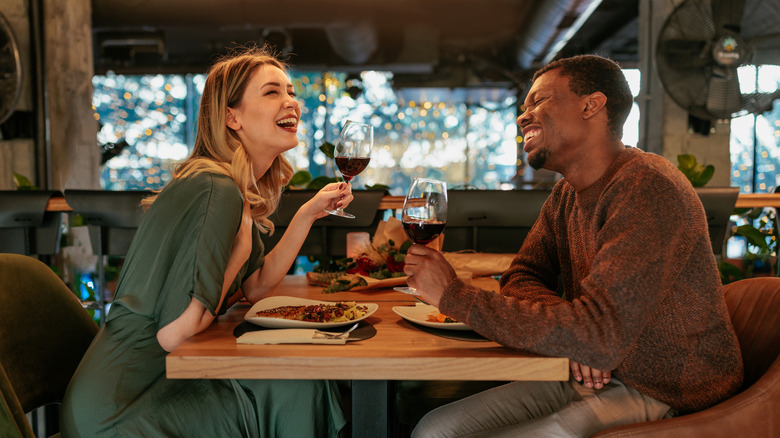13 Affordable Ways To Eat When Traveling — Without Sacrificing Flavor
Food is key to a good vacation, isn't it? It's probably one of the things you remember long after you return home, but it can also cost a lot. Eating out is often the biggest expense following accommodation and airfare. At the same time, it can also be the one cost that you can really stretch out, if you plan wisely.
Managing your food costs while traveling, without compromising on the quality or taste, can prove to be a tricky affair, but one well worth mastering. It is possible to eat well, experience local flavors, and still keep your spending in check, and it all comes down to balance. The trick is deciding when to splurge, where to save, and how to discover the hidden gems around you. If you are willing to experiment as well as be more mindful of what you spend on, there are many ways in which you can eat some delightful meals while keeping costs low. At the end of the day, food isn't just about sustenance; it's also an integral part of experiencing life in a new place and creating memories that last.
1. Book accommodations with cooking facilities
There are two types of travelers. The ones who always book hotels because they don't want to worry about cleaning or cooking. And the others who prefer the spaciousness that short-term lodging services offering apartments often provide, along with amenities like washing machines and full kitchens.
Most hotel rooms do have fridges, and if you're lucky, a coffee-making station with an electric kettle, but that doesn't make a proper kitchen. To really save money while traveling, we recommend looking for accommodation with at least a microwave and a fridge with a freezer section, if not a hot plate or stove. While you don't want to spend your holiday over a stove, cooking even a few meals can save a significant amount of money. Kitchen access is also undeniably attractive when staying at a place for longer than a couple of nights. If you are a large family or group, saving money on breakfasts and having mini meals available can be priceless. Rental kitchens are also great for cooking food, storing groceries and leftovers, and reheating meals to stretch out your eating budget for longer. Plus, having a space to eat a proper meal feels less icky than eating takeout in a hotel bed.
2. Street food is your best friend
If you are on a tight budget and need to keep a close eye on your daily expenses, eating street food is probably your best option. Eating street food doesn't mean you have to compromise on quality, though. In most places, the street food is where the real action takes place because you'll be eating at the same spots locals favor.
So, how do you find these street food spots? Most cities around the world have food stalls that line certain streets, where you will find locals, working professionals, and travelers grabbing a quick bite. Some may have a few plastic chairs and tables, while others just have people enjoying their meals standing up. Meals at these street food stalls usually cost a fraction of what you would pay in a restaurant, and you get to try authentic, local cuisine that's often bursting with flavor. From empanada sellers in Central and South America to local market stalls across Europe and the profusion of food vendors all across Asia and Africa, eating street food is the easiest and most delicious way to save money without cutting back on the gastronomic joys of your holiday. It's also the best way to immerse yourself in the local culture, meet people, and experience flavors you may be hard-pressed to find in the more touristy restaurants.
3. Ask the locals
Finding the best and cheapest places to eat is actually pretty simple. All you have to do is ask a local where they like to eat. But don't just ask them for recommendations. Rather, ask where they like to eat that isn't too expensive. Or what you should not miss trying out in their city.
And before you respond with an "I don't know anyone," think again. Your hotel staff, the cab driver, shop attendant, or even someone you meet while sightseeing can point you in the right direction. The key is to get out of your comfort zone and think beyond the usual options. Don't look for the safe options like a chain burger restaurant or a generic pizza joint. A local can, at the very least, help you avoid the tourist traps. They can point out where the closest street food market is, or send you in the direction of an establishment serving local cuisine. Take advantage of their personal knowledge. They are the best resource you have, and they will be able to tell you about their favorite spots, ones that won't break the bank.
4. Fill up on breakfast
If you've been smart enough to book accommodation that includes breakfast, you've already scored a big money saver. It's worth checking for a hotel, B&B, or guesthouse that offers this perk, but not if it is too costly. Loading up on a heavy breakfast before heading out is one of the easiest ways to save money and stay within your daily spending plan.
A heavy breakfast will keep you going for a long time, negating the need for a mid-morning pit stop or expensive café snacks. Come lunchtime, all you may need is a light snack at a local cafeteria or market stall. This approach allows you to focus your spending on a memorable lunch or dinner rather than snacking your way through the day. Be warned, though, a heavy breakfast comes with its own challenges when traveling. Some people find it makes them feel sluggish or uncomfortable. Many travelers are not used to wandering around on a full stomach, while others are not keen on a heavy breakfast. If the option is available to you, however, it's worth embracing. Strategically timing your breakfast and pacing yourself can make it an excellent tool for saving money, staying energized, and enjoying your day without constant interruptions for food.
5. Lunch deals over dinner
Even if you're traveling on a budget, there may be a special place that you want to splurge on, for example, that Michelin-starred restaurant you've heard so much about. In such cases, you would be better off choosing lunch over dinner, and the reason for that is simple: Often, the same dish would cost less at lunch rather than at dinner, giving you an immediate savings. The main reason that many restaurants offer lunch at a lower price is demand. Dinner service is far more popular than lunch, as most people tend to go out to eat after work or during the evening. By contrast, lunch is generally quieter, so restaurants often offer lower prices to attract diners during the day.
The other reason to relax the purse strings a bit for lunch rather than dinner is that many restaurants offer meal deals during lunch hours. Opting for lunch allows you to enjoy the same high-quality food at a fraction of the dinner price. These lunchtime meal deals can prove to be quite beneficial and worth your while. Splurging on lunch will also help you manage with just a light meal at dinner, always a good thing from the digestive point of view.
6. Don't get slapped with extra charges
You may be quite used to the freebies that your local restaurants keep dishing out, but while traveling, these can turn out to be a nasty surprise. This is because in many countries, it is quite normal to keep food and drinks like bread, olives, or bottled water on the table and be charged for them if these are consumed. If you don't want it, you can ask the waitstaff to clear the table. But if you eat or drink it, you will be charged for it. In Portugal, it is customary and is known as "couvert" or "cover charge," and it is something that can add up pretty quickly.
Extra charges are something that can really add up, so your final bill can be way over what you expected when you checked the menu prices. Extra charges can include VAT, a service charge, corkage, tips, a surcharge for credit card payments, and more. It seems like quite a rip-off when you expect a bill of $80 based on the menu prices, but get saddled with a bill in the range of $120 with all the extras. To avoid unpleasant surprises, always read the fine print on the menu and ask questions if anything is unclear.
7. Carry your own snacks
Being unprepared when exploring a new city can be an expensive proposition, especially when it comes to food. While you may have budgeted for three meals out a day, it is those frequent stops for a quick coffee or a snack that can add up rapidly and throw your budget off track.
To prevent that from happening, it is better to be prepared and pack snacks for the day. Experienced travelers make it a habit to pack snacks before heading out, as wandering the streets of an unfamiliar city can be unpredictable. You never know when the next café or restaurant will be available, or whether it will even be within your budget. Apart from the convenience, carrying your own water bottle and packing items like pretzels, crackers, apples, protein bars, and sandwiches means you can keep yourself going for quite a while without having to visit a restaurant. With these on hand, you can keep yourself energized for hours without relying on overpriced street or tourist food. Nothing beats enjoying a quiet, leisurely sandwich on a park bench while watching the world go by. It's a small pleasure that also helps you stretch your travel budget, leaving more room to indulge in a special meal later in the day.
8. Get out of touristy neighborhoods
Restaurants tend to be more expensive in the vicinity of tourist attractions, hence the name "tourist trap." You've been wandering around exploring the new city, visiting all those places you've seen pictures of and read so much about. You're tired, and what's more natural than stopping at the café next to the famous landmark you've just explored for a quick pit stop?
It is these stops that can turn out to be really expensive, and before you know it, you've blown your whole food budget for the day. And to add insult to injury, the food will also probably be mediocre, so you've just spent a whole lot for some very average food. So how do you avoid these touristy establishments? One easy way to do it is to walk away from the popular neighborhood for a couple of blocks. Hopefully, you will come across a quieter neighborhood with a restaurant or two that locals frequent. If you are unfortunately right in the middle of a tourist zone, try getting into a quieter area and looking for a place like a shawarma stand. While it still may not be a cheap dish, it will definitely be more affordable than an Insta-worthy restaurant right next to a popular attraction.
9. The supermarket has more deals than you think
Supermarkets are not only good for snacks and drinks (though these are great too), but you may be surprised at the number of meals you could whip up with just a few grocery store basics. As one Redditor explains, "I'd probably be eating canned veggies, ready-made rice I could heat in the microwave, canned smoked salmon ... maybe canned chicken (make a chicken salad), veggies that could be eaten raw — carrots, cauliflower, broccoli."
Rotisserie chickens are another game changer as well. Use them in sandwiches, salads, wraps, or even as is for an instant and easy protein fix, after a long day of travel. Pair with a bag of ready-to-eat, chopped up veggies, tubs of hummus or spreads, or even a baguette from the bakery section, and you've got yourself a balanced meal in minutes. Yogurt, granola, and cereal are also handy for quick breakfasts or midnight snacks. According to travel expert Nomadic Matt, "supermarkets offer lunchtime specials for workers in the surrounding areas. These usually entail fresh sandwiches or some soup, or salads. Additionally, many supermarkets also discount food that expires soon, including bread, baked goods, meat, and produce. ... Buy groceries in the evening and you can likely find yourself some discounted (but still totally safe and edible) food."
10. Join a restaurant loyalty program
From Starbucks to Panera, Dunkin to Chick-fil-A, every restaurant knows the value of its loyalty program. As customers, it pays to decide which ones to join because the benefits can be well worth the initial investment. When traveling, being a member of a restaurant reward program can be even more invaluable when you consider the savings involved. If you plan your holiday, you can rack up points for things like free coffees, access to special menu items, special prices, invitations to events, and celebration bonuses (which are great if you are traveling over a birthday, for example).
Beyond loyalty programs, there are also online deals available through platforms like Groupon or Yelp Deals. These can offer some of the best dining discounts in any city you're visiting. You can easily change your location settings to find local promotions, happy hour specials, or tasting menus ahead of time.
11. Try not to eat at the airport
A very hot topic among the online travel forums, how to save money at an airport, will have you sifting through hundreds of replies and strong opinions. From starving and intermittent fasting is good for you to finding yourself a good credit card that gets you access into a lounge (and free food and drink), you can pick and choose which advice best suits your mindset and travel style.
As for us, we think the most sensible advice when it comes to eating at an airport when on a budget is simple — don't. Airport (and airline, too, for that matter) food is notoriously overpriced. Shelling out big bucks for lukewarm sushi or a bottle of water and a packet of nuts is not the best way to start (or end) any holiday. Instead, follow the advice of a flight attendant on Reddit, who says, "Being cheap and healthy in an airport is almost impossible. ... Bring protein powder, protein bars, maybe some baggies of vegetables or nuts." Also, keep in mind the customs rules for any country you are visiting or even transiting through. If you are visiting places like Australia and New Zealand, they have extremely strict import laws, and you can end up paying hefty fines for even carrying a packet of chips that you don't declare. So be prepared, read the rules, and pack accordingly.
12. Carry a reusable bottle wherever you go
It's surprisingly easy to get dehydrated while traveling. You are on the road or on your feet the whole day — or you don't want to risk a dodgy toilet stop — whatever the reason may be, your water intake may drop while vacationing. But what do you do when every drink racks up the expenses? Well, for one, carry your own reusable bottle and refill it wherever you can. Buffet breakfast with access to juice or water? Top it up? Traveling in Europe, tap water is perfectly safe to drink and absolutely free. In certain countries like Switzerland and Italy, you can also drink from local fountains (but remember to check first). In Asia, you may have to think twice before filling up on non-filtered water, but most good establishments serve filtered water and would refill your bottle for not too much more than spare change.
You can also use your thermos or bottle to stock up on juices for the kids while on the road, and avoid expensive pit stops, or make your own coffee and avoid adding pricey Frappuccinos to your daily expenditure. Even better, keeping a refillable bottle handy reduces plastic waste — a small but meaningful step for your health, your wallet, and the planet.
13. Budget for a splurge (or two)
All things considered, travel gets us out of our comfort zones and gives us some of the best experiences of our lives. Haggling and pinching pennies all the time is never a fun deal, so with that in mind, we say, budget for a splurge or two. Or as some travelers suggest, maybe even a mini splurge a day. For example, when planning your trip, you could account for one or two really special meals that will be remembered forever. If you stick to your budget, it can just as well be built into your costs and made to feel all the more special when you finally sit down to enjoy it. Or you could choose to eat breakfast at your hotel or short-term rental apartment, grab a simple snack at lunchtime, and then go all out with a nice sit-down dinner, making the effort feel even more worthwhile.
The trick is to find out what's important to you and your fellow travelers and reach a spending plan that makes everyone happy. Being on a budget does not mean having to avoid all the fun options available — it just means that you are being picky and choosy about the ones that mean the most to you. And at the end of the day, these are usually the moments that stick with you the longest, creating the best memories.

